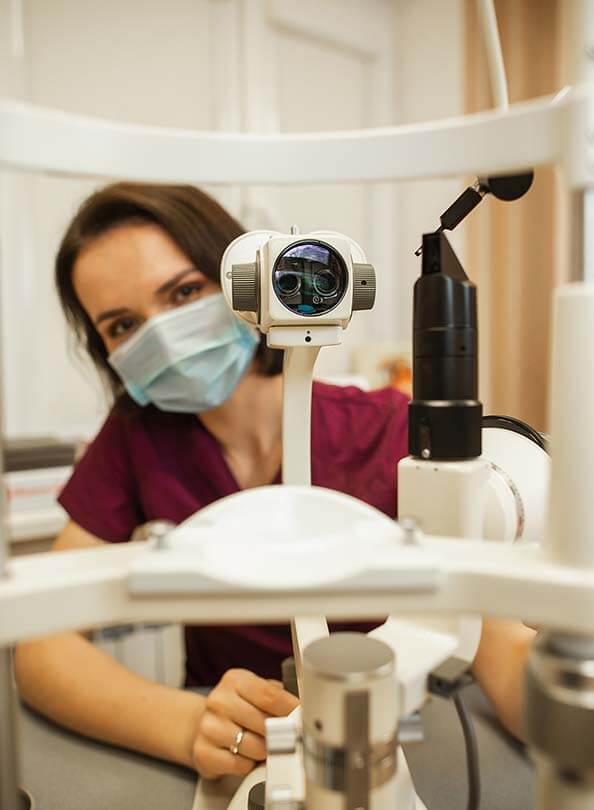Refer a Patient
iScope is currently accepting new patients. A referral from your primary care physician or specialist is required for consultations covered by your provincial plan. If you require rehabilitation services a referral is not required.
The goal of vision therapy is to enhance a person’s visual abilities and cognitive abilities without the need of surgery. When contact lenses or glasses alone are not sufficient to correct a visual abnormality, it is usually employed to treat certain conditions.
Here are three important considerations for vision therapy:
By improving visual function and quality of life for those with vision impairments, vision therapy can offer significant and long-term benefits. A thorough evaluation by a licensed eye care specialist is necessary to determine whether Vision Therapy Burnaby is appropriate for a particular individual’s needs.

Vision Therapy is a therapy that aims to improve visual processing and perception through a variety of exercises and activities. It is intended to treat a variety of visual impairments, including lazy eye, eye teaming and tracking difficulties, and perception issues associated with learning disabilities.
These are three essential points to remember regarding Vision Therapy:
Vision Therapy is a viable therapeutic option for those with vision impairments that can dramatically enhance their quality of life. To establish whether Vision Therapy is right for you, you should have a thorough evaluation from a qualified eye care practitioner.
Visual Therapy is a non-invasive treatment that aims to improve graphic processing skills and address underlying vision problems in individuals with learning disabilities. Learning disabilities can affect various aspects of an individual’s life, including academic performance and social development. Visual Therapy can help improve graphic skills such as eye tracking, focusing, and depth perception, which are essential for academic tasks such as reading, writing, and math.
Here are three critical points about Visual Therapy for Learning Disabilities:
Visual Therapy for Learning Disabilities is a promising treatment option that can significantly improve the quality of life for individuals with learning disabilities. A comprehensive evaluation by a qualified eye care professional is necessary to determine whether Visual Therapy is appropriate for an individual’s needs.
A healthcare expert with a focus on eye and vision care is an optometrist. They are skilled in looking for different visual flaws in the eyes and recommending correction procedures like glasses or contact lenses. Optometrists Burnaby also offer pre- and post-operative care for eye procedures, diagnose and treat eye diseases and ailments, and provide guidance on maintaining excellent eye health.
An optometrist’s main duties and tasks include the following:
If you have special inquiries or want to learn more about optometry, don’t hesitate to ask!
Ophthalmologists and optometrists are health care providers for the eyes, although they have varying degrees of education and experience. Primary eye care is provided by optometrists, who also diagnose common eye illnesses and write prescriptions for glasses and contact lenses. On the other hand, ophthalmologists are medical professionals focusing on eye and vision care who can undertake procedures and manage challenging eye conditions.
Monday: 9:00am – 5:00pm
Tuesday: 9:00am – 5:00pm
Wednesday: 9:00am – 5:00pm
Thursday: 9:00am – 5:00pm
Friday: 9:00am – 5:00pm
iScope is currently accepting new patients. A referral from your primary care physician or specialist is required for consultations covered by your provincial plan. If you require rehabilitation services a referral is not required.
Suite 301 – 1111 Lonsdale Ave North Vancouver, BC V7M 2H4
P: 1-888-550-5508
F: 604-900-7676
Suite 200 – 8837 201 St Langley, BC V2Y 0C8
P: 1-888-550-5508
F: 604-900-7676
Suite 301 – 9639 137A St Surrey, BC V3V 0C6
P: 604-900-7007
F: 604-900-7676
Suite 500 – 89 Queensway West Mississauga, ON L5B 2V2
P: 1-888-550-5508
F: 416-900-7006
© Copyright 2023 Iscope Concussion and Pain Clinics. All Rights Reserved